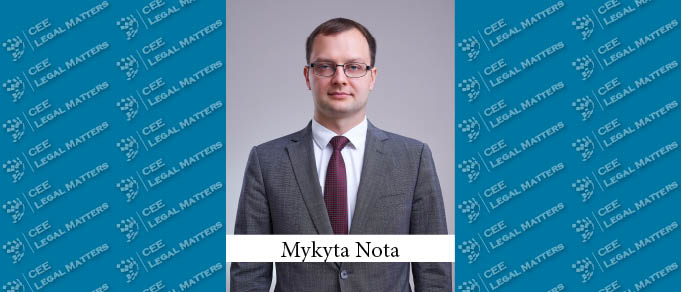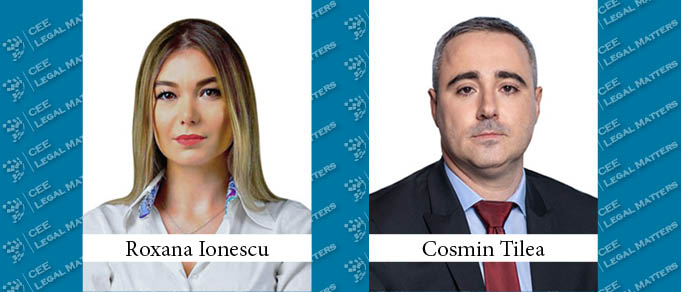The initiative of the European Commission aims to support innovation and fair competition by creating a framework for the issuance and provision of services related to crypto-assets. The Commission believes that where crypto-assets are not covered by the financial regulation of the European Union, the absence of applicable rules to services related to such assets leaves consumers and investors exposed to substantial risks. It aims to ensure a high level of consumer and investor protection as well as market integrity in the crypto-asset markets, and to address financial stability and monetary policy risks that could arise from the wide use of crypto-assets in financial markets.
Mykyta Nota Makes Partner at Avellum
Head of Avellum's Competition practice Mykyta Nota has been promoted to Partner, as of January 1, 2022.
Roxana Ionescu and Cosmin Tilea Promoted to Partner at RTPR
Competition and M&A lawyer Roxana Ionescu and Banking & Finance specialist Cosmin Tilea have been promoted to Partner at RTPR.
Maja Subic and Katarina Mervic Make Partner at Senica
Former Senior Associates Maja Subic and Katarina Mervic have been promoted to Partner at Senica & Partners, Andersen Global's Slovenian member.
The Turkish Competition Board Emphasizes the High Standards Applied in the Assessments Regarding the Allegations Concerning Discrimination and Refusal to Supply in the Pharmaceuticals Sector
The Turkish Competition Board (“Board”) has recently assessed the allegations that Allergan Ilaclari Ticaret A.S. (“Allergan”) engaged in discriminatory conduct and abused its dominant position by way of refusal to supply in its preliminary investigation decision. The complainant, Denge Ecza Deposu Ticaret A.S. (“Denge”), alleged that Allergan supplied some of its pharmaceutical products only to certain warehouses, rejected Denge’s request to work with Allergan and hindered Denge’s activities by restricting its access to Allergan’s products. The Board’s decision is remarkable as it assesses the allegations in detail under both Article 4 (anticompetitive agreements) and Article 6 (abuse of dominant position) of Law No. 4054 on the Protection of Competition (“Law No. 4054”) by discussing the competition literature on certain concepts such as indispensability and essential facilities doctrine and making references to the decisional practice in the European Union.
Merger Control: Adjustment of the Local Nexus under the Transaction Value Threshold in Austria
The Austrian Federal Competition Authority (FCA), together with the German Federal Cartel Office (FCO), has published an update to its guidelines on the application of the transaction value thresholds (Guidelines).
Don't Wait Too Long to Enforce Your IP Rights, Especially Community Plant Variety Rights
Mark Twain famously said "Never put off till tomorrow what may be done day after tomorrow just as well." Although procrastination usually does not have serious consequences, careful consideration is needed when enforcing IP rights. In its recent decision in case C‑186/18, the Court of Justice of the European Union ("CJEU") concluded that an unjustified delay in enforcing IP rights may result in the loss of a large part of the claim due to time-limitation.
































